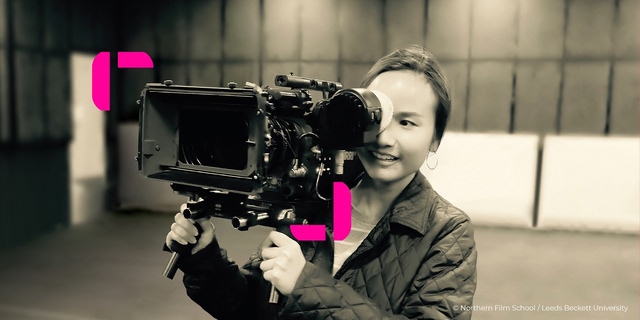Experts give insight on how educators can support students to start successful careers in UK screen industries

The future of the UK’s screen industries is vibrant and positive with big opportunities for students equipped with the right skills, networks, attitude and access to industry entry points. Ensuring industry and educators collaborate is also vital for ensuring the UK screen industries’ recovery following the pandemic and continued global success and reputation.
These were the overriding messages from the inaugural ScreenSkills Select Congress 2021 (Tuesday 23 March) where more than 150 educators heard the latest intelligence from award-winning experts from the screen industries. Delegates included those from colleges, universities and independent training/learning providers.
Alex Hope, co-founder and former managing director of DNEG and current ScreenSkills Vice Chair, who gave the opening keynote address, was among several speakers who emphasised the positive future for UK screen industries and the need for continual partnership working. He said:
“The UK screen industries have core polymath strength in creativity and technology, from storytelling to coding. We have a global reputation for being able to harness these twin strengths and we want to build on this to take advantage of the growth opportunities. This means it is absolutely imperative that we are all working together.
“Those in education need to feel supported by the industry who are sharing new developments with them, so they can train the workforce for the future in the skills industry needs.”
He added:
“In what has been a really tough year, there is an opportunity for industry, educators and policy makers to strengthen our talent pipeline. This will uphold and build on the UK’s global reputation and position, and deliver the growth that is needed for our industry.”
The online Congress brought educators and industry together to discuss the big skills challenges and opportunities UK screen industries face and how educators can best prepare students for the fast-evolving world of work. The programme placed an emphasis on lessons from scripted and unscripted productions alongside discussions with experts from across TV, film, games, animation and VFX.
The scripted case study was led by the senior production team (Steve Clark-Hall, Kevin Loader and Simon Bowles) behind current HBO series Avenue 5.
For the unscripted case study, delegates heard from Andrea Hamilton (ModestTV) and Jai Cave (ENVY Post Production), about the making of Little Mix The Search. They particularly focused on the breadth of opportunities available for students, and the need for them to understand how all of the different parts of a production work together before they start a career.
Andrea Hamilton, Managing Director, Modest TV, said:
“Students need to understand that the range of roles and opportunities available in screen is vast. It isn’t just the last four or five on the credit role. There were close to 200 people involved in getting Little Mix The Search to air. It’s vital that when educators are talking to students and graduates who want to work in entertainment, they understand all the different parts of the machine and how each one works.
“New entrants think that if they keep their ambition vague – ‘I’ll do anything’ – that this will increase their opportunities. In truth, what makes someone stand out is if they understand how all the component parts involved in producing a show connect and work – and know which bit they want to work in.”
Other sessions included Cécile Blondel, international development director of the renowned French school Gobelins in conversation with Tom Box, Managing Director, Blue Zoo,
All of the sessions saw experts explain how best to maximise student chances of finding the crucial first role, for example, who to approach, how to make the first contact,the need to tailor these tactics, as well as the importance of building networks.
As importantly, the industry leaders also discussed what new entrants needed to focus on when in their first role including the importance of being adaptable, passionate and personable – as relationship-building is vital.
The Congress also re-emphasised the importance of diversity and inclusion, including the industry-wide push towards further development of the workforce in the nations and regions.
Tim Weiss, Director of Vocational Skills, ScreenSkills, said:
“Throughout the Congress, the depth of the insights and intelligence that industry experts freely shared with educators proved how vital each other is in future proofing UK screen industries. A collaborative approach in better preparing students for their careers has never been as important as now, especially given the increasing confidence there is in future industry growth and opportunities.
“The emphasis from the speakers on practical examples, on the breadth of roles that it takes to deliver a production and on providing key tips on getting that crucial first role will help educators better prepare their students in starting their careers. The advice on how to network and approach the industry was very perceptive and valuable.
“It was also important that educators had a real opportunity to keep abreast of all the latest developments and trends for their own professional development and to network with fellow practitioners and industry colleagues.
“The Congress proved again that ScreenSkills Select is essential for bringing education and industry together, which in turn improves the quality of teaching, student recruitment and the employment prospects of graduates.”
The Congress was available to all educators in colleges and universities, but places were free for educators from ScreenSkills Select endorsed courses, as the Congress is a benefit of endorsement.











Responses